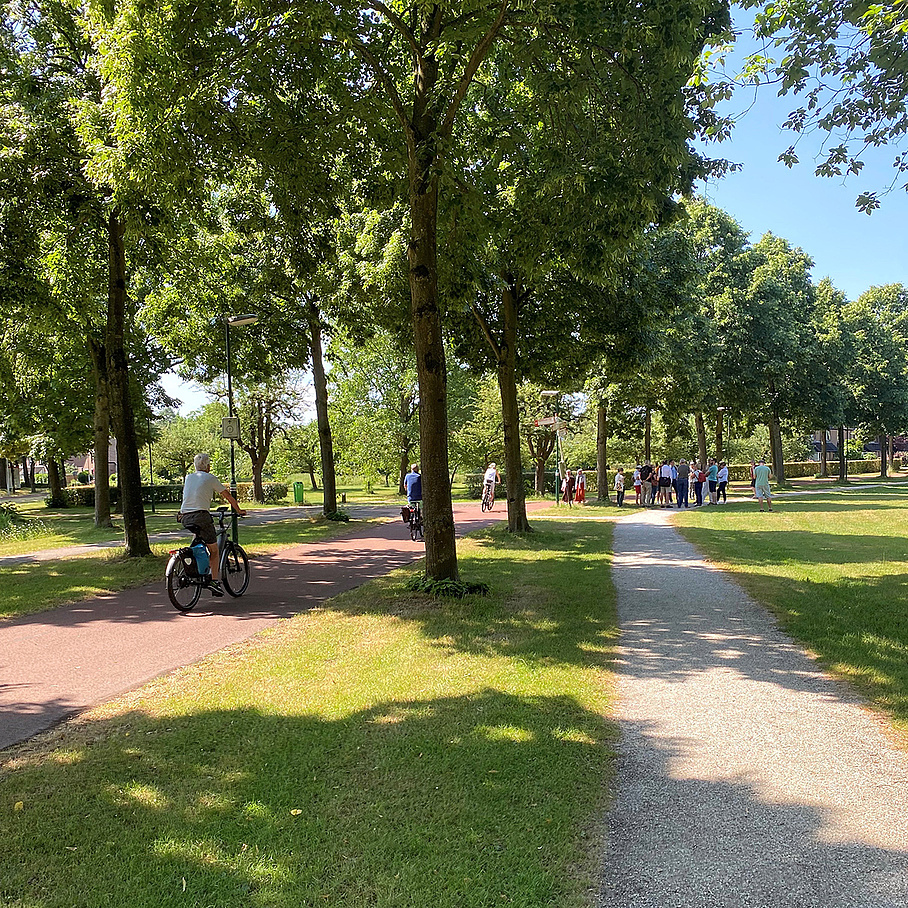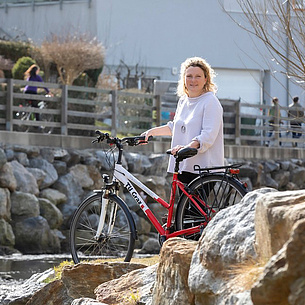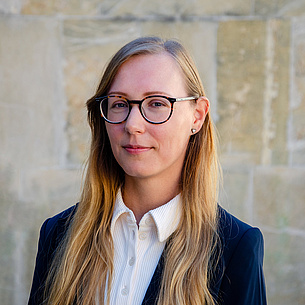Climate-Ready Spaces for Active Mobility
Planning bicycle and pedestrian traffic
The course content focuses on designing and planning sustainable, resilient open spaces and networks (streets, squares, paths, etc.) that are ready for climate change and suitable for various forms of active mobility and users.

Dates and deadlines
- Course start: on request
Quick Facts
- Length: 12 attendance days in 3 blocks + self-study
- Certificate: Certificate from TU Graz
- ETCS credits: 6
- Language of instruction: German
- Course Location: Graz
- Number of participants: max. 20
- Participation fees: € 3,500 (VAT-free), incl. course materials, drinks during breaks and excursion
Reduced participation fees for project and cooperation partners of the Institute of Urban Design at TU Graz: € 2975 (VAT-free)
It is possible to book individual modules (according to the curriculum). Prices and programme on request.
- Curriculum

Redesigning mobility space is a crucial step in greening the city. Small and medium-sized cities will also have to face this reality. The university course, as (university) further education, is therefore an excellent networking opportunity for and with specialist planners, project managers and experts from the field of active mobility.

Content
Block 1: Strategy & concept: walking around the town centre/cycling in the region
- Understanding active mobility in the city/municipality at regional/municipal level, creating synergies and connecting them spatially
- Recognising the needs of pedestrians and spatial requirements for a successful pedestrian concept
- Between destination-orientated everyday cycling and route-orientated leisure cycling: Offer-orientated path networks
Block 2: Landscape-connected paths/maintenance & organisation: Climate-friendly infrastructure in the long term
- Optimising the integration of blue-green infrastructure into the landscape network
- Processes for integrated consideration, information and safeguarding of infrastructure
- Organisational processes, conservation and safeguarding measures, communication and awareness-raising
Block 3: Detail & project: walking for all/cycling infrastructure & multimodality
- At the project level of different public spaces, various aspects must be considered and negotiated
- Barrier-free design, width and equipment of footpaths
- Building blocks for well-used cycle routes and paths, planning and design principles for a high level of comfort
Forms of teaching and learning
Flexible teaching and learning:
- Face-to-face teaching in three 4-day blocks with lectures and workshops (including a perceptual walk/bike tour/excursion)
- Guest lectures with external experts from Germany and abroad
- Practical examples of successful implementations
- Networking and exchange among each other
- Supplementary digital self-study with online formats, e.g. film material, recorded lectures, events, literature research and short reports as reflection in a transfer phase
Target groups and admission requirements
Specialist planners & project managers:
- Traffic planners and engineers
- Landscape planners and architects
- Urban and spatial planners
- Geographers
- Environmental systems scientists
- Graduates of “Global Studies” and other relevant degree programmes
People with sufficient practical experience (without subject-specific degrees):
- Cycling and pedestrian traffic officers, mobility officers
- People from politics and municipal administrations in Austria
- Managers for a KEM Klima-Energie-Modellregion (climate energy model region)
- Managers for a KLAR Klimawandel-Anpassungs-Modellregion (climate change adaptation region)
- Anyone involved or interested in sustainable mobility
Contact
Application
Required application documents:
- Completed and signed application form
Please send your application documents by post or e-mail to:
TU Graz
Life Long Learning
z.H. Sarah Meinhardt BA
Stremayrgasse 16
8010 Graz

Contact
Sarah Meinhardt
BA
TU Graz Life Long Learning
Tel.: +43 316 873 4945
lifelong.learning@tugraz.at

